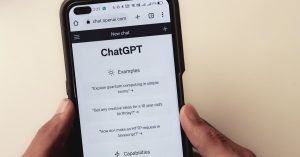Governance tokens are set to revolutionize decentralized finance (DeFi) in 2024. This article explores the key advancements and changes in governance tokens, their growing influence in decentralized platforms, and how they’re reshaping participation in blockchain governance.
The Evolution of Governance Tokens
Governance tokens have become increasingly influential in shaping decentralized platforms. Key developments include:
- Enhanced decision-making power for token holders
- More sophisticated voting mechanisms (e.g., quadratic voting)
- Deeper integration with the broader DeFi ecosystem
- Improved alignment of stakeholder interests
The Rise of Decentralized Finance in 2024
DeFi has experienced significant growth, driving demand for governance tokens. Notable trends include:
- Expansion of DeFi Ecosystem: More dApps and protocols across various financial activities
- Improved Interoperability: Seamless integration between different DeFi platforms
- Enhanced Governance Mechanisms: Implementation of more equitable voting systems
- Mainstream Adoption: Increased interest from traditional investors and institutions
- Integration with Traditional Finance: Creation of hybrid financial products
The Power of Governance Tokens in DAOs
Governance tokens play a crucial role in Decentralized Autonomous Organizations (DAOs), offering:
- Direct participation in decision-making processes
- Alignment of incentives among token holders
- Promotion of decentralization and reduced reliance on central authorities
- Exploration of novel voting mechanisms for more equitable governance
Advances in Blockchain Technology and Governance Tokens
Technological advancements enhancing governance token capabilities include:
- Improved scalability solutions (e.g., Layer 2, sidechains)
- Enhanced smart contract functionality
- Better interoperability between blockchain networks
- Integration of oracles for real-world data
The Future of Participatory Governance
Looking ahead, we can expect:
- Increased Token Holder Engagement: More incentives for active participation
- Transparent Decision-Making: On-chain governance processes
- Improved Governance Token Utility: Expanded use cases beyond voting
- Cross-Chain Governance: Participation across multiple blockchain networks
Conclusion
Governance tokens are poised to play an increasingly vital role in shaping the future of DeFi. As blockchain technology advances and adoption grows, these tokens will continue to evolve, offering more powerful and inclusive ways for users to participate in decentralized governance.
To stay informed and participate in this evolving landscape, consider researching governance tokens of projects you’re interested in and engaging with their communities.
FAQ
Q: What are governance tokens?
A: Governance tokens are cryptocurrencies that give holders voting rights and decision-making power in decentralized platforms or protocols.
Q: How do governance tokens differ from utility tokens?
A: While utility tokens serve specific functions within a platform, governance tokens allow holders to participate in the platform’s governance and decision-making processes.
Q: Can governance tokens increase in value?
A: Yes, governance tokens can appreciate in value based on the success and adoption of their associated platforms, as well as the perceived value of voting rights.








